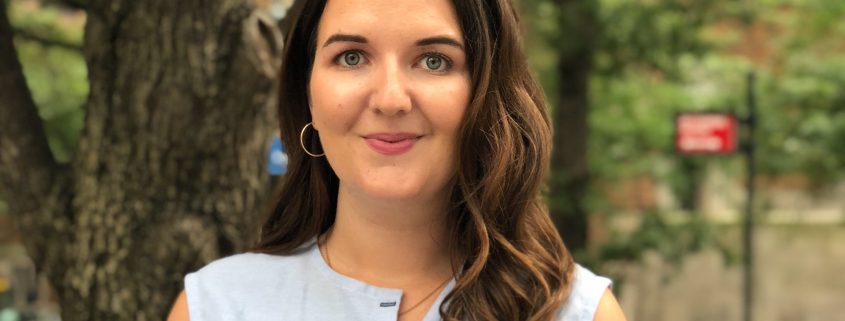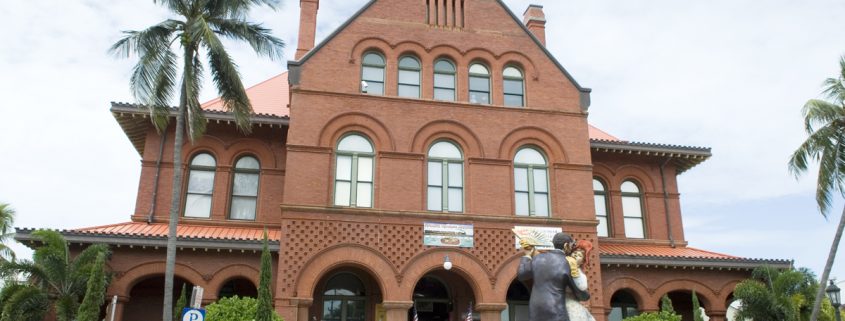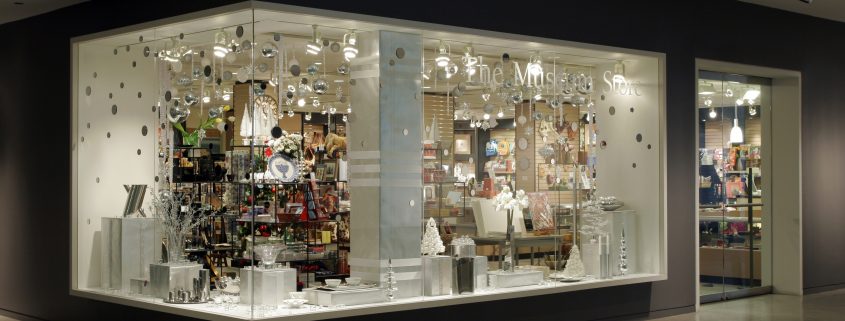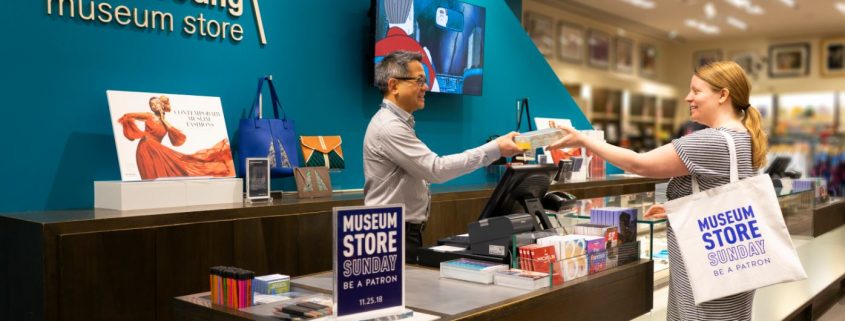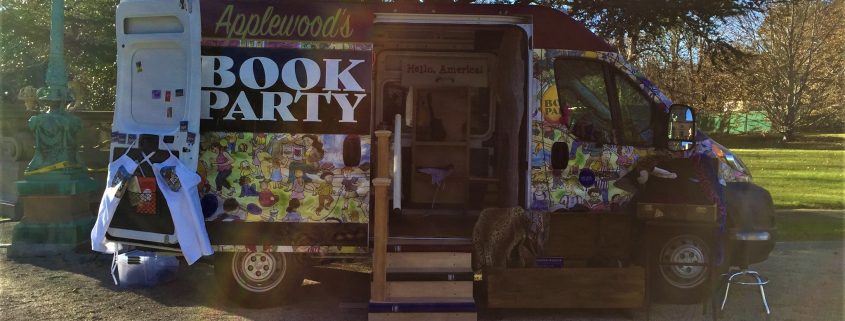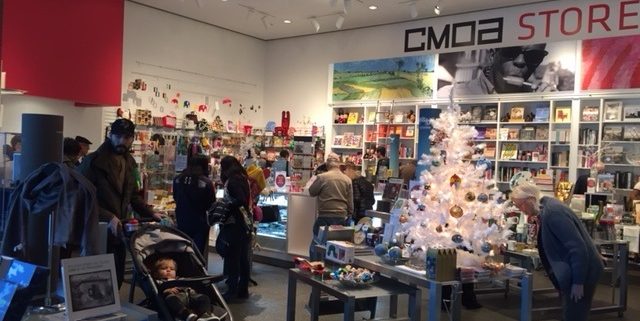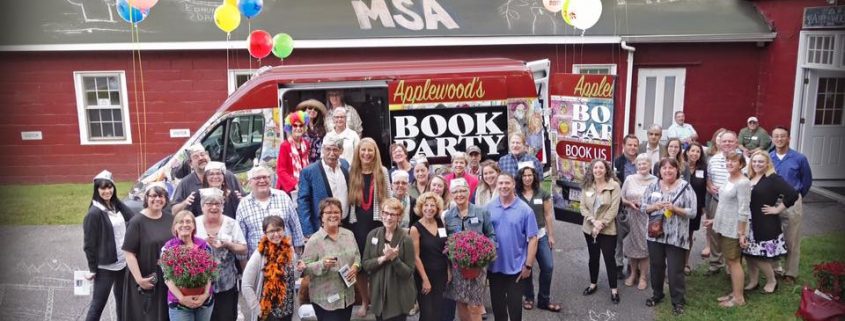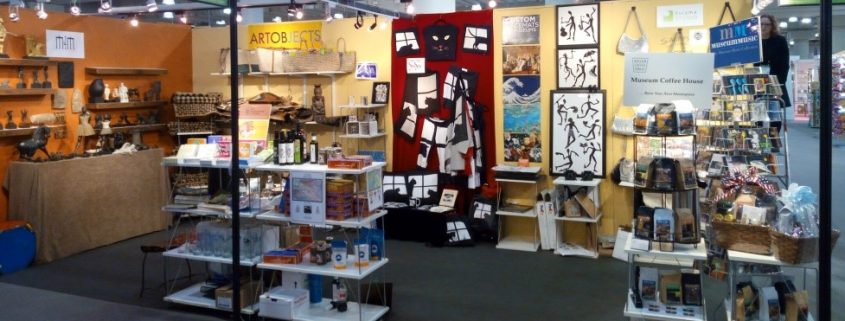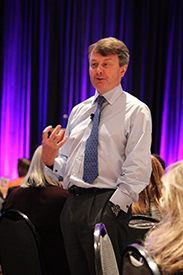August 6, 2018
By David A. Duddy
Charlie Stathacos, David Somlyo and Marodeen Ebrahimzadeh are dynamic and personable colleagues and are all proud MSA members. Come and introduce yourself at the upcoming NYNOW in the Artobjects Booth (#7266) in the Museum Source section.
Charlie Stathacos, President, Artobjects Unlimited 
Where did you grow up? What has your life journey been like?
I grew up in Buffalo, New York, graduated from the University of Colorado with a degree in anthropology. After a stint with the Peace Corps and USAID’s Office of Food for Peace, I received a master’s degree in applied economics from Cornell University. My international career, advising agriculturalists and small businesspeople, eventually brought me to Artobjects. My mother, Leta Stathacos, who had been store manager at the Albright-Knox and was very active in MSA (eventually honored with a Lifetime Achievement Award) founded Artobjects Unlimited in 1987 as a wholesale rep company, and it has been participating in MSA conventions ever since. I took over as president when Leta retired, and the company continues to act as representatives for American artists and designers as well as global artisans. Artobjects has acted as an incubator for art- and design-driven businesses, and we have watched many of them strike out on their own to forge a path to their own success (and a few becoming MSA vendors!).
What was your first experience with a museum or nonprofit? What work did you do with them?
I remember my first MSA conference in Chicago on Navy Pier. It was very interesting! Since then, I have come to work closely with many institutions, often trying to provide the right products for their stores that fit upcoming exhibitions. In addition to working with and representing U.S. art and design companies, I have managed to fuse my career in international trade and development with Artobjects, working on projects for which I have provided access to trade shows in the U.S. And with funding not always available, I assist my international clients with developing their own businesses and products, so they may participate in the Artobjects booth and we can help sell for them. We even started a GoFundMe page to support travel, training, product development and getting samples shipped (https://www.gofundme.com/helping-african-artisans). The experience of a wholesale trade show is new to many of my clients, but it offers them a unique opportunity to present their work and meet the buyers directly. There are some learning curve moments for them. Don’t be so anxious to please the buyers to the point where you sell all of your samples!
There are many challenges in the current retail world. What are you trying to use to your advantage, and what keeps you awake at night?
I think e-commerce is the answer to both of those questions. Just as we try to make our offerings more global by working with overseas artists and artisans, the whole marketplace has global access through the internet. There are so many challenges to keeping all of our channels open and current, particularly when you represent small artisanal businesses. Keeping websites fresh and inviting and balancing that with still doing trade shows to meet the clients in person.
Have you ever been to an MSA chapter meeting?
No, but I may make it to the one coming up in September!
What do you eat for breakfast? Is it always the same?
Two slices of super multi-gain toast — maybe with peanut butter. Sometimes eggs and potatoes.
Any hobbies? Special talents?
I love biking and rollerblading!
David M. Somlyo,Owner, Museum Music Inc. / Museum Coffee House Inc.
Where did you grow up? Where did you go to school? What has your life journey been like?
I grew up in NYC — very close to where I live now. I went to Friends School, then Vassar College, then Syracuse University Law School. I practiced law for five years with a small litigation firm on Wall Street, then started my own firm practicing entertainment law for about four years. I was very motivated to live abroad at some point in my life, and in 1997 moved to Budapest working as an attorney there for more than two years. It was a spectacular experience! When I returned to the U.S., a client of mine had been working on creating a CD with MoMA, New York, and I helped with some advice. I became very interested in the company and wound up joining it and then running it in 1999.
What was your first experience with a museum or nonprofit? What work did you do with them?
My first collaboration was with the MET, on our “Painters in Paris” CD. We have continued to partner with museums and have now produced more than 80 custom CDs for over 40 institutions! With the decline in interest in CDs and DVDs in the general population, museum stores remain the best and most targeted market for our products. They are still seen as gifts or souvenirs of the cultural experience, and customers will still purchase them on that basis. We find the MSA Expo is a great way to directly connect with the market that we primarily target.
There are many challenges in the current retail world. What are you trying to use to your advantage, and what keeps you awake at night?
The whole CD industry is challenged by MP3s and streaming music. Initially, most of our products were compilations of music, and my knowledge and skill as an entertainment lawyer was incredibly useful in obtaining rights. We now pursue more projects involving original content that can only be found through us. For example, it took us three years working with MoMA to create a really terrific children’s CD called “Pop! Goes the Easel” with original songs performed by Broadway stars. Prep and design time is much longer, but you wind up with a truly original product that you control. We also have diversified with a new product line: Museum Coffee House, offering certified organic and fair trade premium packaged coffee targeted to the museum market.
Have you ever been to an MSA chapter meeting?
Not yet, but I should investigate one if it is close by.
What do you eat for breakfast? Is it always the same?
Steel-cut oatmeal with bananas and sometimes other fruit.
Any hobbies? Special talents?
I swim on a regular basis and often test out our latest music using waterproof earphones while I swim. We need to know what it sounds like however people listen! I see a lot of theater with my daughter, and I go fishing with my son, mostly in Sheepshead Bay in Brooklyn, and in Central Park! You wouldn’t believe the fish we have caught (and released!) there. I have cage-dived with great white sharks, tracked mountain gorillas in the Congo, and, yes, I can juggle!
Marodeen Ebrahimzadeh, Owner, ETANA Inc. and Made 4 Museum 
Where did you grow up? Where did you go to school? What has your life journey been like?
I was born in an Assyrian Christian family in Iran, and so we fled the country in 1978. In Iran, I had a master’s in fine art and interior design. In the U.S., I went back to school studying fine art printmaking. My concentration in Iran — my first love — was bronze sculpture. It led to my own extensive personal collection and to my business of providing fine art reproductions to museums in this country and globally since 1985. After Cal State Fullerton, I did some fine art framing, printmaking and jewelry design. I then began to start sculpting for others as well as doing my own work. I started doing wholesale shows around the year 2000 in New York City and other venues. In my travels and through referrals, I identified MSA as a great potential market for my line of reproductions.
What was your first experience with a museum or nonprofit? What work did you do with them?
I was fortunate to connect with the British Museum in London and to create for them a Lamassu, a winged deity with the body of a lion and the head of a man, originally from Assyria. Many such reproductions are being made now overseas in resin, but I try to remain true to the bronze materials that lend real quality to a small piece like that. I sell to many other institutions with encyclopedic collections, like the de Young in San Francisco and the Museum of Fine Arts in Boston and the Getty in Los Angeles. There is an upcoming special exhibition at the British Museum that I am creating work for now that focuses on pieces from Ashurbanipal, which has always been a particular special interest of my studies and my own collections.
There are many challenges in the current retail world. What are you trying to use to your advantage, and what keeps you awake at night?
There are a lot of middlemen flooding the market with cheap reproductions, and, of course, many such things can be found on the internet. I am beginning to use sales reps to gain more access to fine art galleries in order to open up those wholesale markets to find more suitable markets for my work. Certainly, clients from MSA are very knowledgeable and interested in quality.
I am not that concerned about 3-D printing … yet. There are still many flaws in the production process, requiring the hand of an artist or craftsman to finish a piece properly. If you are insisting on quality, there is still the hand of an artist involved.
Have you ever been to an MSA chapter meeting?
I was a sponsor for a Western Chapter meeting in Santa Barbara that Stuart Hata from the Fine Arts Museums of San Francisco was part of, as well as David Howell, another MSA vendor. I know that MSA has been making many changes with more inclusion of vendors in the direction they are taking. So I am considering participating more with MSA in the future, as long as those partnerships continue to be fruitful.
What do you eat for breakfast? Is it always the same?
I usually have cereal with almond milk — sometimes a boiled egg. I usually go to the gym in the morning before work, so a healthy diet is very important to me.
Any hobbies? Special talents?
I have an extensive personal art collection since I also operate a fine art gallery: Square I Gallery in Claremont, California. I have a large number of small bronzes, which have a particular fascination for me for all the fine detail they can record. Although I am devoted to sports, I am told that I am an excellent dancer. I took some physical education courses in college at the suggestion of my basketball coach, when I would sometimes get roughed up on the court by the other players who may not have been that happy with an Iranian on the team. And I always loved those old movies with Fred Astaire and Gene Kelly!
David Duddy is the Deputy Director for Operations at the deCordova Sculpture Park & Museum in Lincoln, Massachusetts, and is a past president of the MSA Board of Directors.

